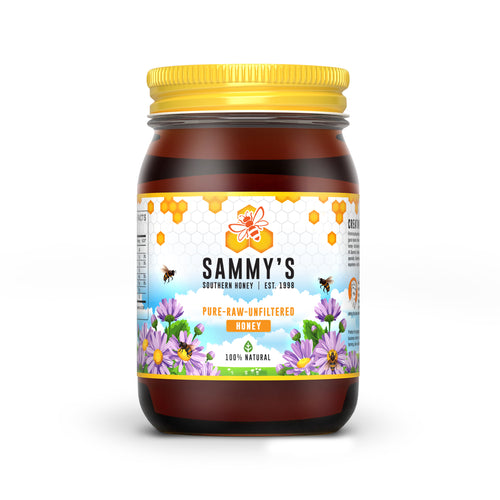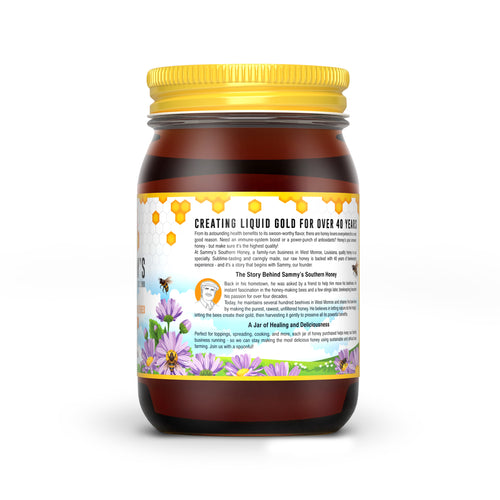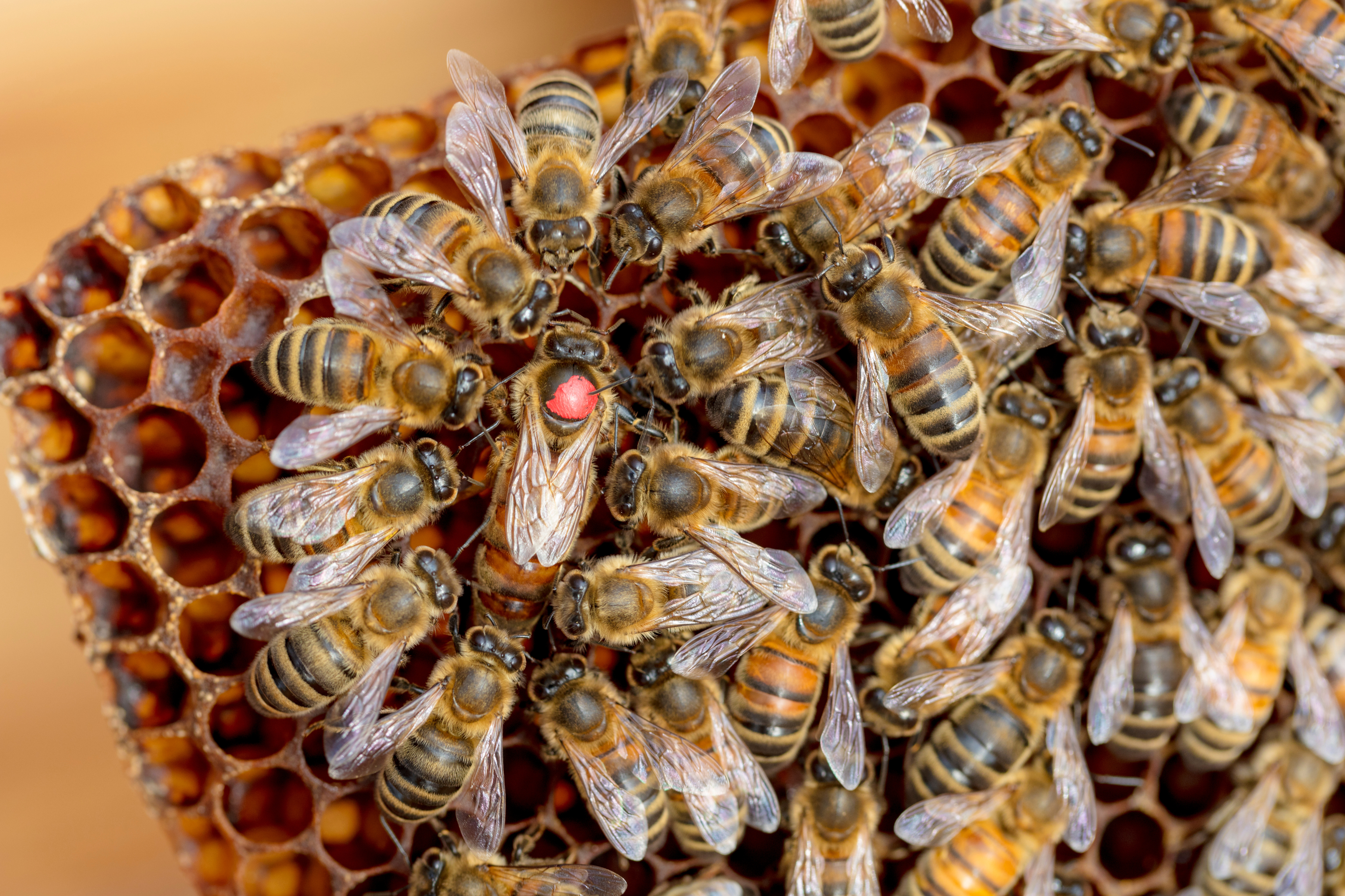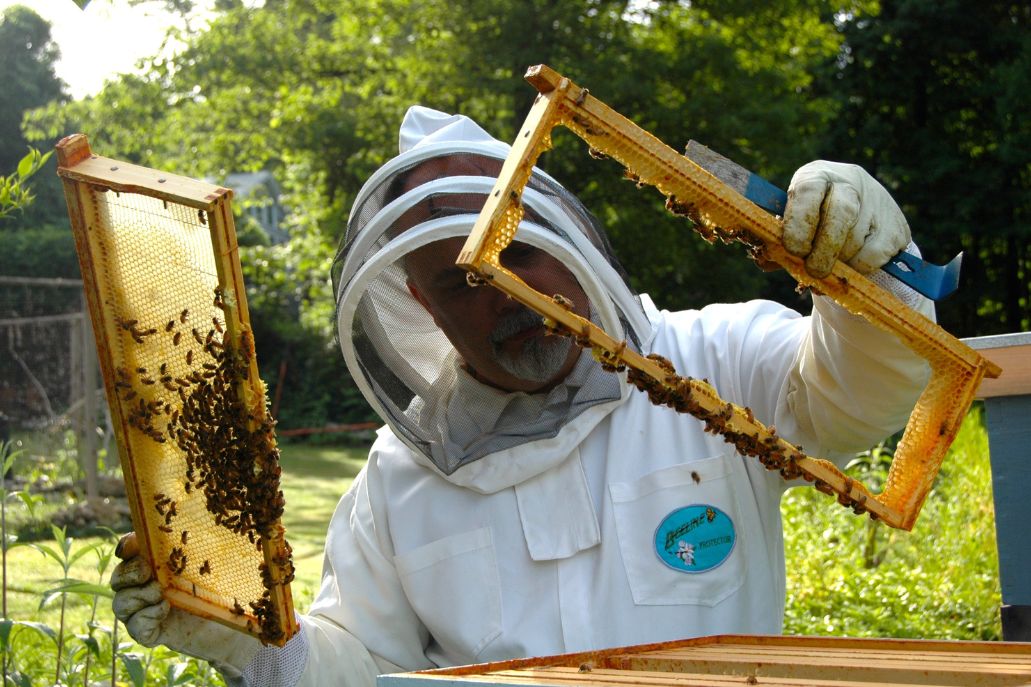Honey is nature’s natural sweetener. It’s been used as medicine and food for thousands of years due to its composition. Honey is packed full of plant compounds, each of them giving several health benefits. If you’re thinking of kickstarting a wellness routine or want to swap out refined sugar for a more natural alternative, this is the party for you.
While honey might make you think of fictional characters like Winnie the Pooh, it’s a nutrient-rich food that you can incorporate into dozens of meals. We’re looking at 10 health benefits of honey that everyone should know. With these benefits in mind, you’ll always have a jar of honey sitting in your kitchen.
1. Honey is high in plant compounds
The first health benefit of using honey comings from its natural composition. We all know that honey is a sweet thick liquid made and gathered by honeybees. On a basic level, these bees collect sugar from the nectar of flowers and bring it back to their beehives. Once inside, they start to consume and digest the nectar that they’ve gathered.
Afterwards, the end product made by the honeybees is what we consider honey. The appearance of your honey will depend on the honeybees who produced it. It can be stored in jars for honeybees to eat or kept purely for human consumption.
On a nutritional level, honey is one of the best ways to sweeten a dish. One tablespoon of honey typically contains less than 70. Calories and 17 grams of sugar. Honey is free of protein, fat, and fiber, making it idea for anyone trying to lose weight or maintain a healthy lifestyle.
Honey is also a natural antioxidant, helping to detoxify your body and lower your risk of heart disease and several cancers. If you want to get the most nutritional value out of your honey, look for darker types of honey.
2. It’s a healthy alternative to sugar
Whether you’re a diabetic or trying to cut down on sugar, it can be difficult to find an alternative to sweeten your tea or morning porridge. Enter nature’s natural sweetener. Eating honey instead of traditional sugar can help to lower your LDL cholesterol and reduce inflammation, while also boosting your body’s positive HDL cholesterol.

If you have type 2 diabetes, honey can be a gamechanger for your diet. Eating it as part of your regular diet can help reduce your risk of heart disease, a condition that is common amongst those with type 2 diabetes. While honey can increase your body’s blood sugar levels, it’s considerably less than what a diabetic will experience with refined sugar.
You still want to approach honey with a pinch of caution if you’re a diabetic. Some people choose to skip out on carbs entirely, while some honey is adulterated with syrup to give it a more pleasing consistency and smell. Although honey adulteration is illegal within several countries, it’s still a serious global issue.
3. Honey can reduce your blood pressure
Do you come in from work and feel your blood pressure going through the roof? Rising blood pressure is a series medical condition, but one that we’ve all been guilty of shrugging off. In reality, your blood pressure is one of the most important elements when it comes to heart disease.
The antioxidant compounds within honey have been proven to reduce your blood pressure to help you become a healthier version of herself. While clinical reason conditions, studies on our four-legged friends – rats – has fallen to the wayside. If you’re a diabetic, it’s worth taking a deep dive into how honey could help you control your blood pressure.
4. It lowers triglycerides
Another risk factor for heart disease is elevated blood triglycerides, which is associated with insulin resistance, making it a major factor of concern for type 2 diabetes. If you have a diet that is high in refined carbs and sugar, your triglyceride levels will typically be higher as a result.
Case studies have found that regularly consuming honey can lead to lower triglyceride levels, with the best results seen in participants who replaced refined sugar with honey. One piece of research found that you can lower your triglyceride levels by up to 19% by eating honey instead of sugar.
5. Eating honey is also proven to help control your cholesterol
Not all cholesterol is ‘bad’ cholesterol. It’s when you have a high LDL cholesterol level that you start to develop a significant risk of heart disease and similar conditions. This risk exists due to the way that this cholesterol builds up in your arteries, leading to the risk of developing a heart attack of stroke.
Research has shown that incorporating honey as a part of your regular diet can help improve your cholesterol levels and get them under control. The health benefit of eating honey is that it lowers your ‘bad’ cholesterol, while boosting and improving your ‘good’ and healthy cholesterol.
By controlling your cholesterol, honey can also help you achieve weight loss. If you have a sweet tooth, honey can be the perfect alternative to refined sugar.
6. Honey is packed full of antioxidants
Although we mentioned antioxidants earlier in this article, they deserve a second mention. Most of the health benefits from honey comes from its antioxidant compounds, particularly those that work to lower your risk of heart disease.
The natural antioxidants in honey work to dilate the arteries in your heart, boosting blood flow to your heart. Similarly, these antioxidants can work to prevent the formation of blood clots that have the potential to lead to strokes and heart attacks.
Early research involving rats has found that eating honey could also help to protect your heart from oxidative stress. While there is no long-term study that has been conducted on the relationship of honey and heart health, its antioxidant composition is one of its best health benefits.
7. A natural wound healer and medicine
As a natural produce, honey has been used throughout ancient history for its medical properties. It dates back as early as ancient Egypt and has been used throughout the generations to tackle everything from burns to closing wounds. Research has verified that honey can help to heal partial thickness burns that have been inflicted on a patient following a surgery.
Another health benefit for diabetes is that honey can be utilized as a treatment for foot ulcers, which are a serious concern for diabetes and could even lead to amputation in extreme cases. One research report found that honey could heal up to 97% of diabetic ulcers in patients, while having a 43.3% success rate when used as a wound treatment.

The antioxidant and anti-inflammatory properties of honey make it a nourishing treatment to tackle dozens of health issues. The most effective honey is the traditional manuka honey, which has become increasingly difficult to find in recent years. Manuka honey is one of the most hyped about natural products.
Beyond the typical health issues, honey can also be used to help improve skin conditions, including herpes lesions and psoriasis.
8. Honey can combat the common cold for children
Do you ever find yourself making tea and honey when you’re feeling under the weather? When it comes to the common cold, children often struggle to find anything to soothe their throat and cough. Most children end up eating until their symptoms lessen and they can go out for drinks.
Having a cough can affect the sleep and life quality for kids and their parents. Most mainstream cough medicines are not effective or suitable for children. Research has shown that honey can be used as an effective cough treatment for children.
One recent study found that it worked comparatively better than two common cough medicines. Additional research found that it worked better are reaching the symptoms of a cough and improving sleep than cough medication.
9. It’s a healthy sugar
Sugar is something that we all enjoy. It’s a way of adding a delicious twist to any dish, whether it’s your morning porridge or a cup of tea. Not only is honey a delicious alternative to sugar, it’s also a healthier option.
It’s worth considering that although honey is a healthier sugar, it still contains a high volume of calories and sugars. When you’re shopping for honey and want to get the most out of its health benefits, invest in high-quality honey and avoid cheaper options that feature syrup.
10. Honey can help with allergies and hay fever
Another type of health concern that honey can help with is allergies and hay fever, although this is an emerging area of research with little to no reporting so far. One case study in Finland found that honey can reduce the symptoms associated with hay fever and allergies. It found that patients who had more honey had 60% less symptoms than those who did not. With winter right around the corner, eating honey can help you get ready for the day.
Honey Facts
Honey Bees have extreme sense of smell which allows them to find their hive and they dance when they return to the hive to tell the other bees where the flowers are. Also, 99% of the bee colony is composed of female bees known as WORKER bees. Worker honey bees transform the floral nectar that gather into honey by adding enzymes to the nectar and reducing the moisture.
SAMMY'S SOUTHERN HONEY


Thank You!
Each jar of honey purchased helps to keep our hardworking family business in operation, and allows Sammy to continue sustainable and ethical bee farming here in the heart of Louisiana. Add some Sammy’s Southern Honey sweetness to your life today!








